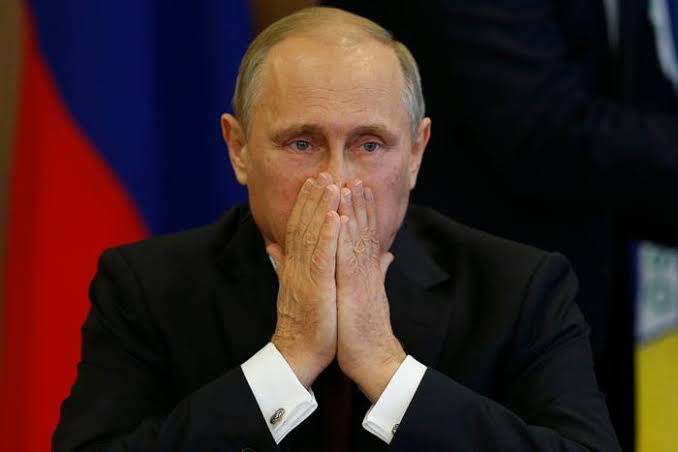Western Countries Exclude Russia from SWIFT : India Must Develop Its Own System Earliest

As the military conflict between Russia and Ukraine continues, the US and its European allies have put forward another way of piling pressure on the Russian government by moving to exclude Russia from the SWIFT interbank communication system, a move which experts described as “unprecedentedly severe,” but is unlikely to deal a fatal blow against Russia not only because of the latter’s long preparation, but also its hard-to-replace economic value to the West, particularly Europe.
SWIFT, or the “Society for Worldwide Interbank Financial Telecommunication,” is a secure messaging system that facilitates rapid cross-border payments. It currently is the principal mechanism for financing international trade, linking more than 11,000 financial institutions in more than 200 countries and regions. Russia accounted for about 1.5 percent of its transactions in 2021, media reports said.
The SWIFT sanction shows that finance has a political nature, and the tenet that “capital has no borders” is a lie. It also rings an alarm bell that Western financial systems are unreliable for countries like India and China which they see as competitors. Thus India, Russia and China must together establish an alternate global financial system.
This should come as a big lesson to India, which must move decisively and quickly develop its own interbank communication system starting with SAARC countries and then moving on to interface it with those of friends in Asia including Iran and of course Russia and Central Asian Republics.
After the Kargil war, seeing the American attitude, India decided that it will no longer be dependent on the much touted American Satellite Navigation System and within a few years established its own Regional Satellite Navigation System NavIC and GAGAN. In a similar manner India Must immediately make a move to develop and establish its own Regional banking system and then expand it internationally.
Immediate move is also required to establish bilateral Rupee Rouble trade system for all kinds of Indo Russian Trade including Arms trade. A similar system is required to be done with China in case they are willing.
The Western sanctions on Russia will surely serve as a catalyst to speed up de-dollarization, as many companies, driven by the need to maintain trade with Russia, will be forced to look for ways to bypass the dollar-dominated system, including by settling foreign trade payments in ruble, rupee as well as the yuan.
According to a White House statement, the US, European Commission, France, Germany, Italy, the UK and Canada would take measures to ensure that “selected Russian banks” are removed from the SWIFT interbank messaging system, which means they will be disconnected from the international financial system. Countries like India and China must stand up like rocks and establish their own systems to end such Western monopolies.
Furthermore, such moves by West reveals an intention to impose “restrictive” measures to prevent the Russian Central Bank from deploying its international reserves in ways that undermine the impact of the sanctions.
The White House did not reveal in the statement which Russian banks will be kicked out of the SWIFT system.
According to Bloomberg, the move is primarily aimed at Russian banks that have already been sanctioned by the Western community, but can be expanded to other Russian financial institutions as well. However, one official said transactions involving energy might be exempt from the SWIFT sanction.
In a written statement, The Belgium-based SWIFT said it was aware of the joint statement on the new measures, and is engaging with European authorities to understand the details of the entities that will be subject to the new measures.
Impact on Russia
The announcement on excluding Russia from SWIFT, depicted by some Western media as a “nuclear option,” is seen by experts as
“unprecedentedly severe.” However it is unlikely to be fatal to the Russian economy, as the Western community, with plenty of economic interests linked to Russia’s supplies, are bogged down in a difficult political wrestling with Russia, and perhaps with themselves as well, over how to take on Russia appropriately without hurting their own economy too much.
This is partly reflected in the aforementioned SWIFT statement, which only cut some, not all Russian banks from the system, a move which analysts said served more as a “deterrence” to stop Russia’s further military action in Ukraine.
It shows that when Western countries sanction Russia, they still have concerns about kicking Russia out of the global economy completely, which is neither likely nor feasible. China and India will never abandon Russia to the utter dislike of the manipulative West.
The hesitation is partly because the SWIFT sanction would exert an immediate and significant impact on Russia’s foreign-bound financial activities by cutting it off from most international financial transactions, thus could immediately stir up Moscow’s nerves and instigate its retaliation.
According to an NBC report, in the wake of the SWIFT sanction, once implemented, Russia could lose profits from most oil and gas production, which account for more than 40 percent of the country’s economic revenues.
But since the SWIFT sanction has not materialized yet, experts said it is very hard to determine the actual impact it will have on the Russian economy. At least 70 percent of Russia’s outbound financial receipts and payments will be halted, at least for the short term, if all Russian banks are kicked out of the SWIFT system.
On the other hand, the aftermath of such sanctions will not be restricted to Russia, but felt by the Western world as well. In particular, Europe, which relies on Russia-supplied natural gas by as much as 40 percent, would also feel the pain once their trade with Russia is completely severed.
“Once the escalating Russia-Ukraine crisis is contained someday, Europe could not largely bear the economic consequences brought by the possible SWIFT move. Such a ban, which is just shooting themselves in their own foot, is not sustainable in terms of implementation.
De-dollarization
On the other hand, the exclusion of Russia from the SWIFT system would serve as a catalyst to speed up de-dollarization, as many companies, like India and China will continue to trade with Russia, will certainly go for alternate ways of making transactions that bypass the SWIFT system.
If Russia is excluded from international energy settlements with most European nations, energy transactions between Europe and Russia can only be de-dollarized, and that will be the beginning of the disintegration of dollar hegemony.
One important method to offset the SWIFT exclusion impact is to settle foreign trade payments in currencies other than the US dollar, as the SWIFT system is primarily for dollar settlements.
“It’s hard to say if transactions between Russia and countries in euro terms will be cut off as well after the SWIFT exclusion, but the chances are low considering the dependence of European traders on Russian energy.
Russia has also implemented measures to reduce reliance upon the dollar in recent years, including creating a new payment system that cannot be controlled by the US and giving huge taxation benefits to exporters who use ruble instead of the US dollar, media reports said.
The Russian government signed agreements to link the payment system, named SPFS, to payment systems in China, India as well as countries within the Eurasian Economic Union. According to CNN, SPFS now has around 400 users.
Besides, a number of Russian banks are connected to China’s Cross-Border Interbank Payment System, or CIPS, which may provide another alternative to SWIFT.
“The proportion of Russian companies using CIPS, China’s international payment system, will increase as a result of the sanctions. Russia also has a number of other ways to bypass the SWIFT system, like barter trade or agent banks, predicting that Russia should be able to make up for 50 percent of the trade losses with alternative measures.
Although Russia has not specifically responded to the SWIFT sanction, the country sent messages earlier that it would take retaliatory actions against countries that placed it under sanctions.



